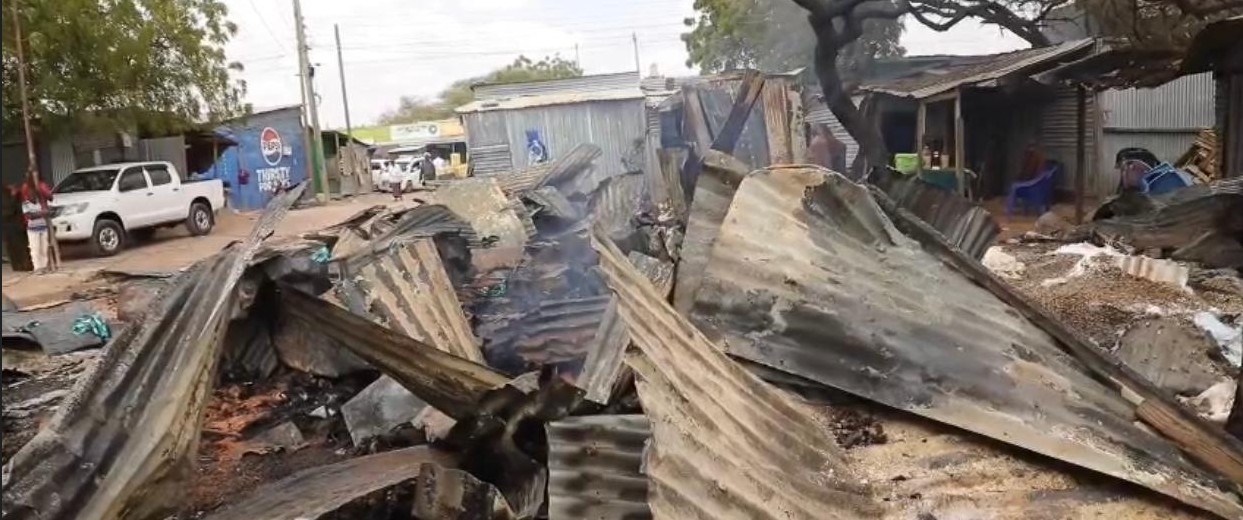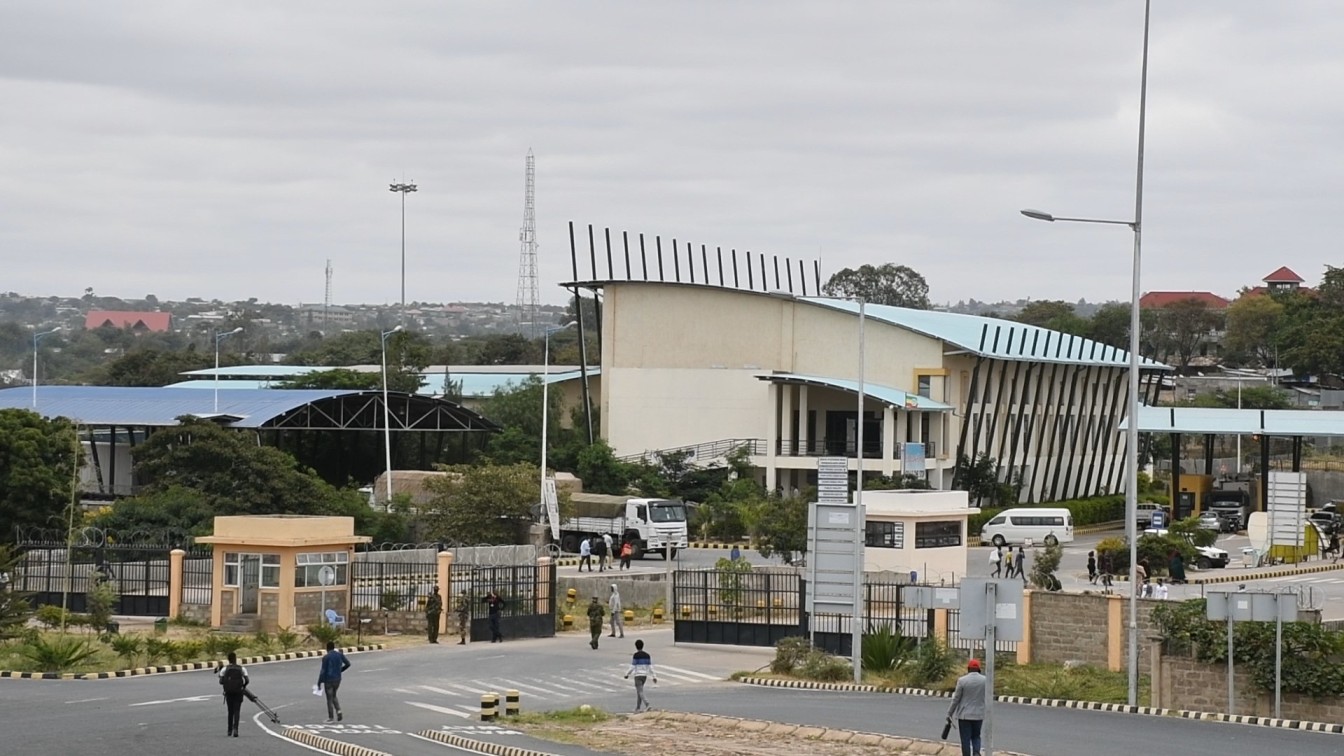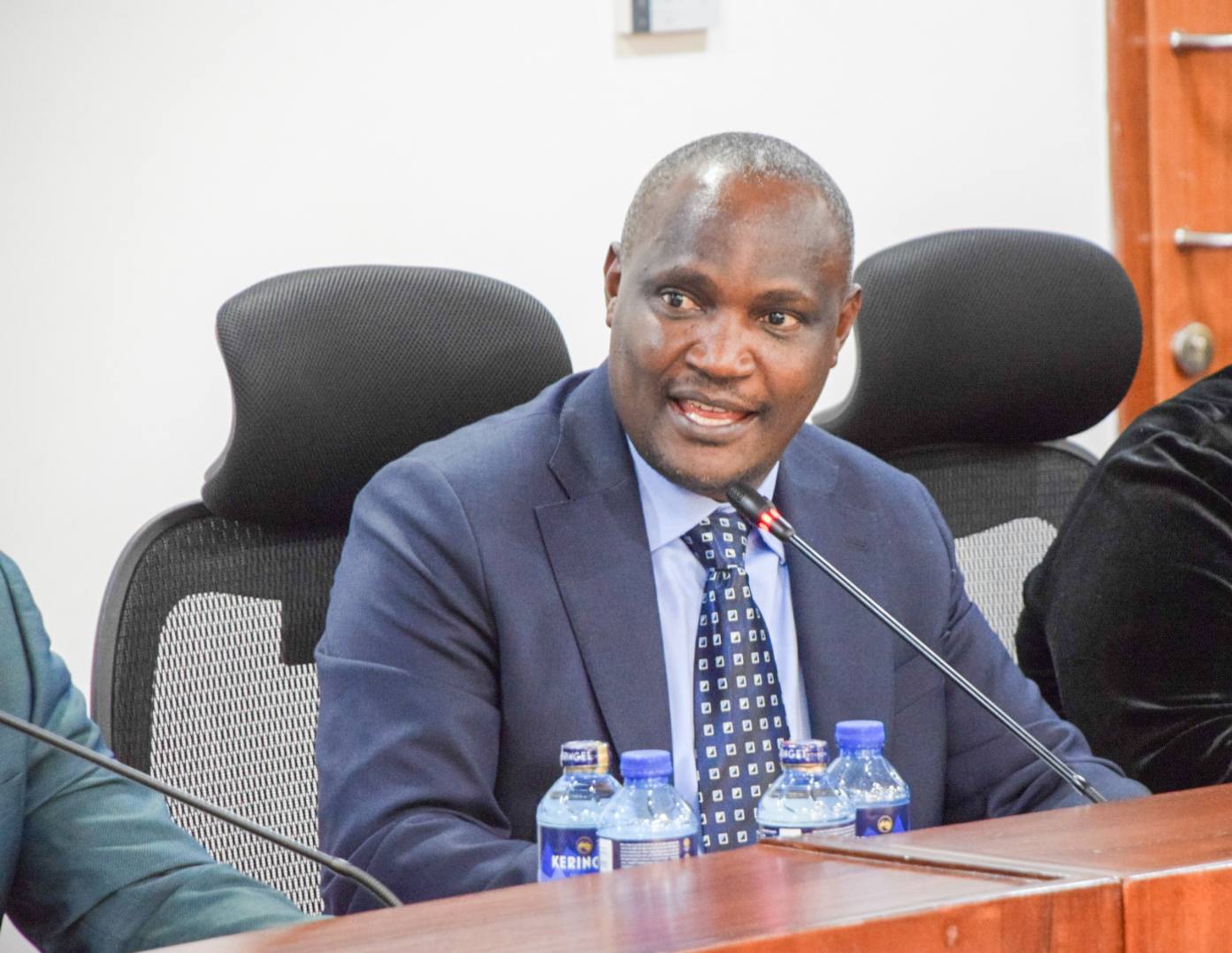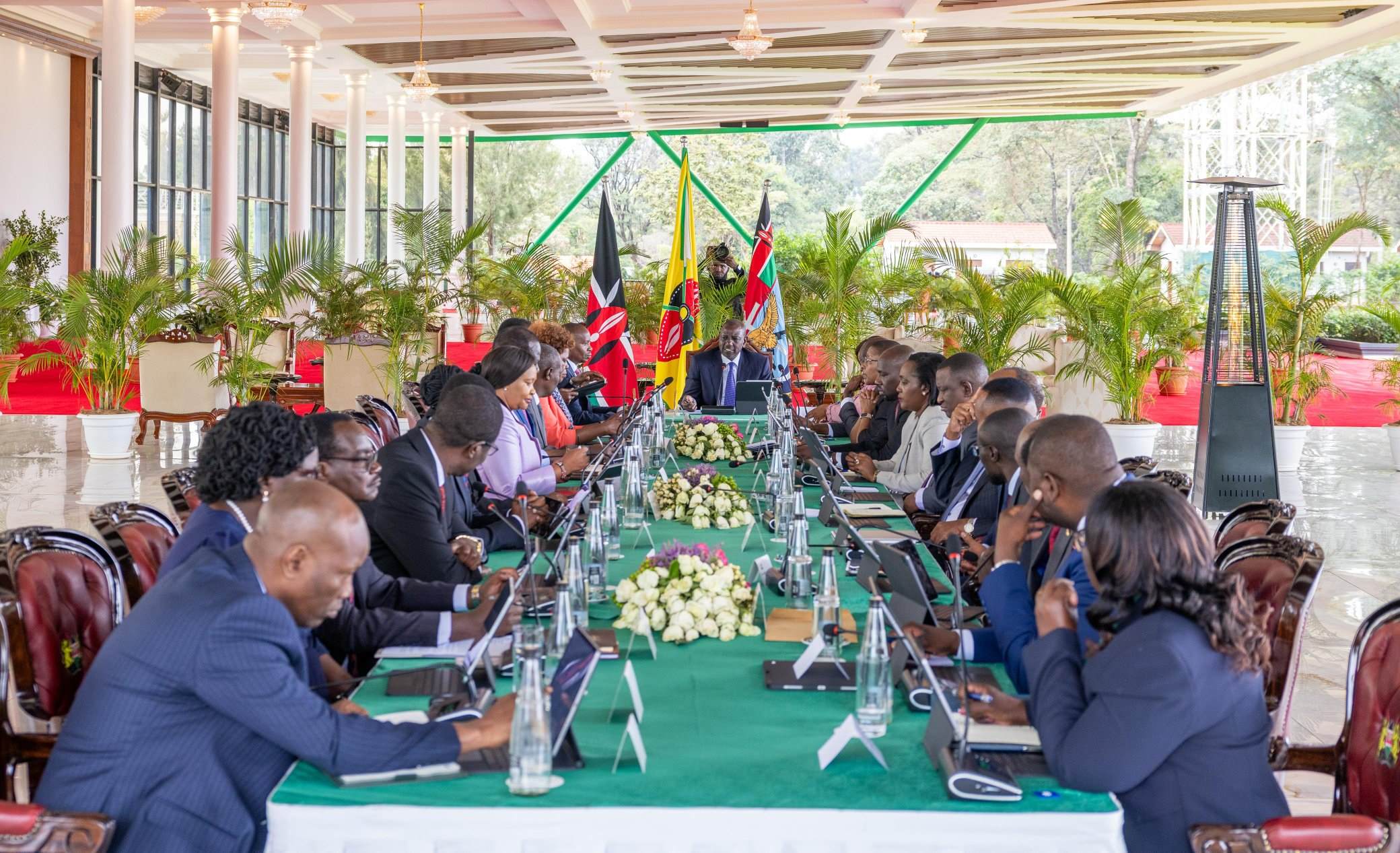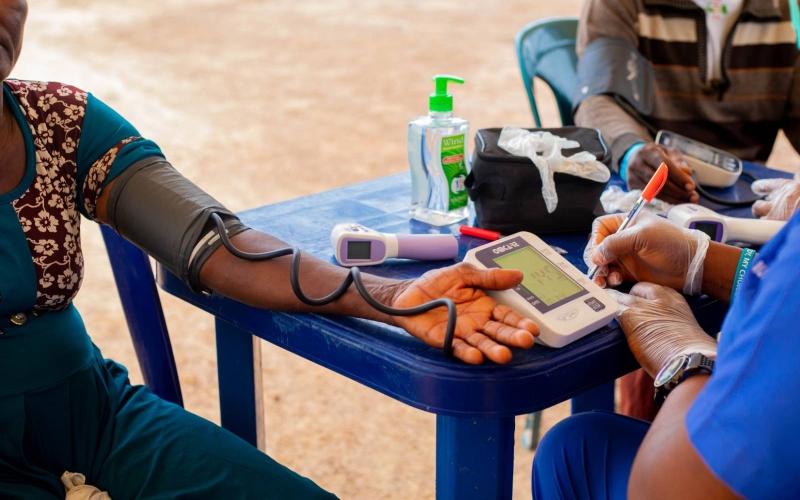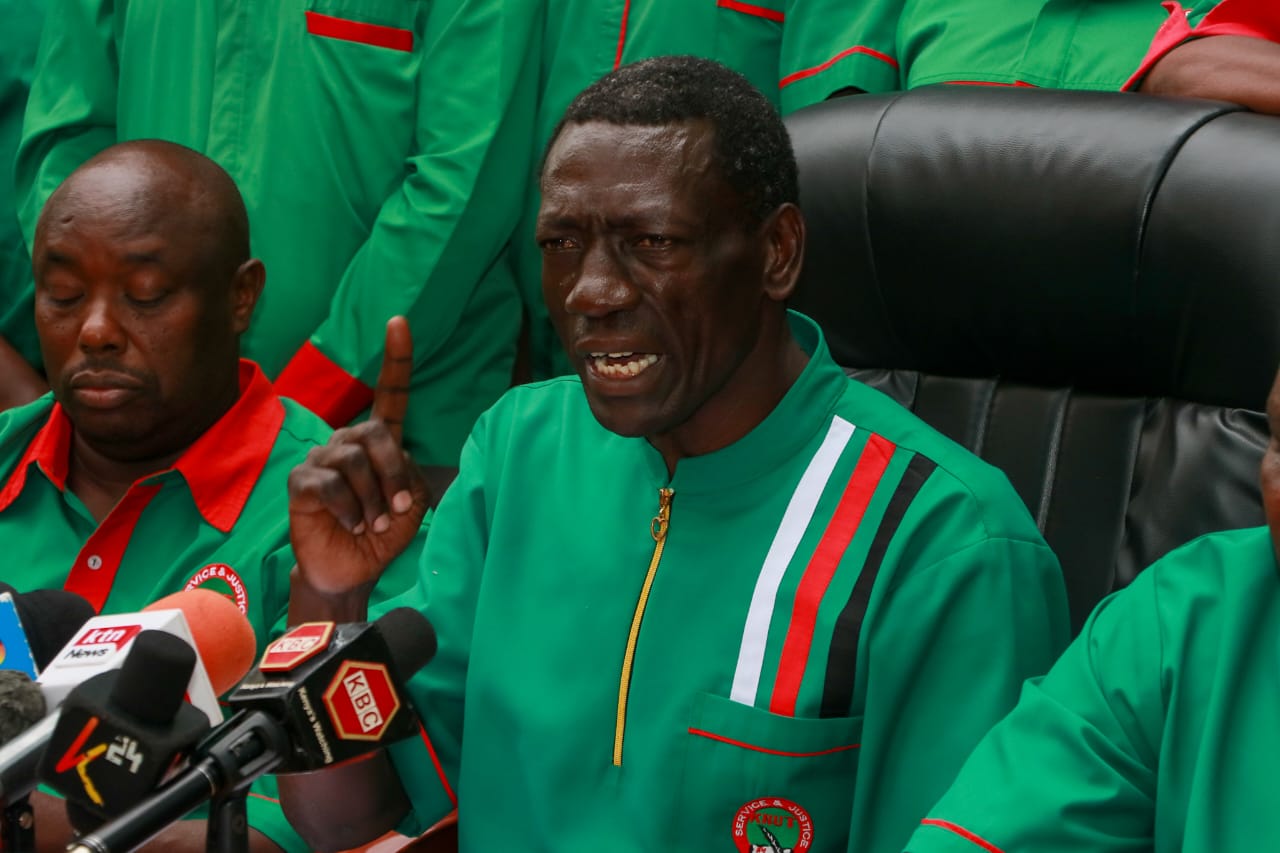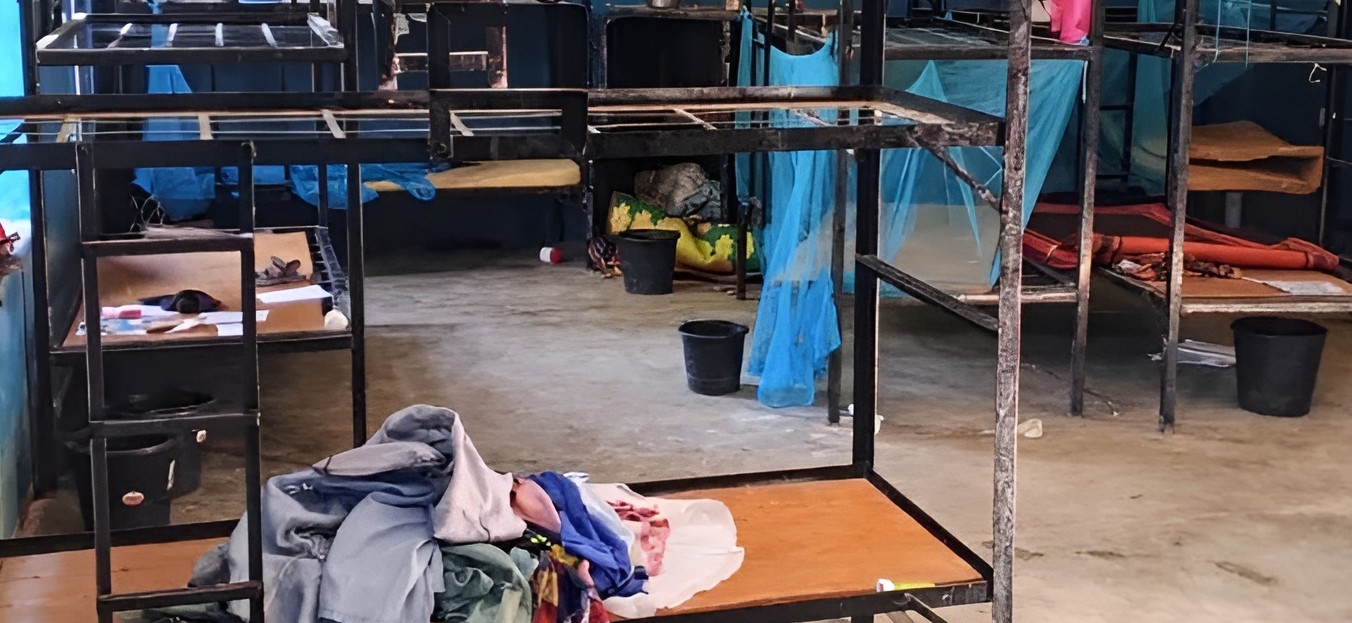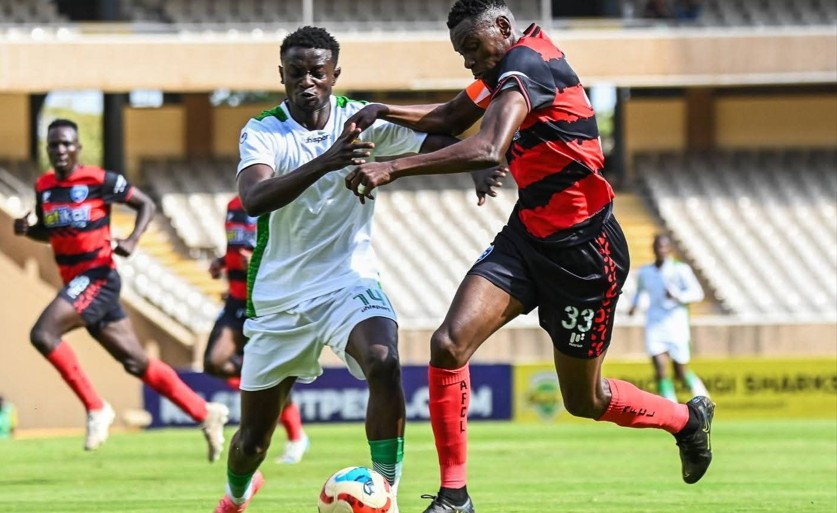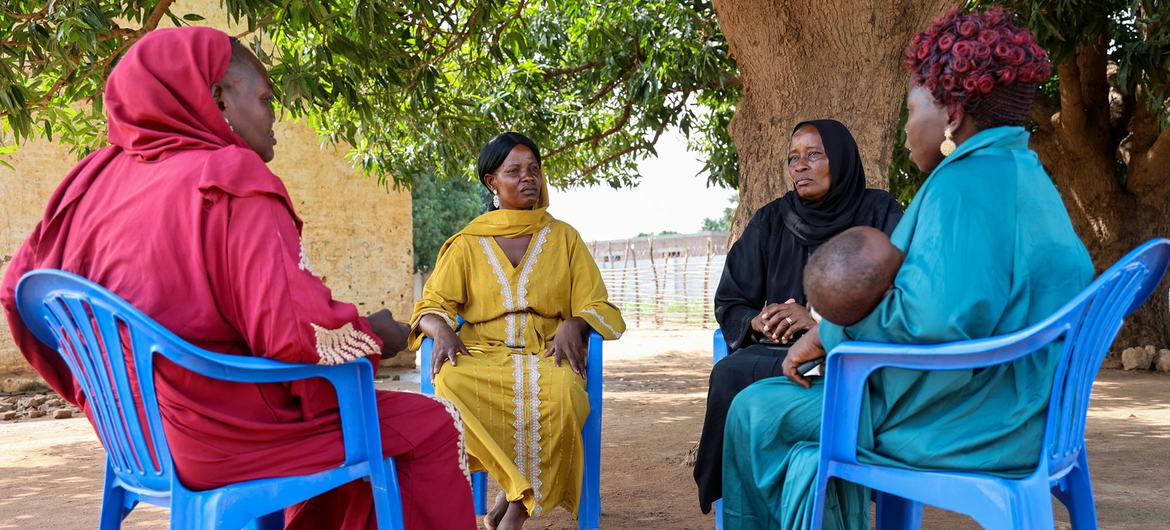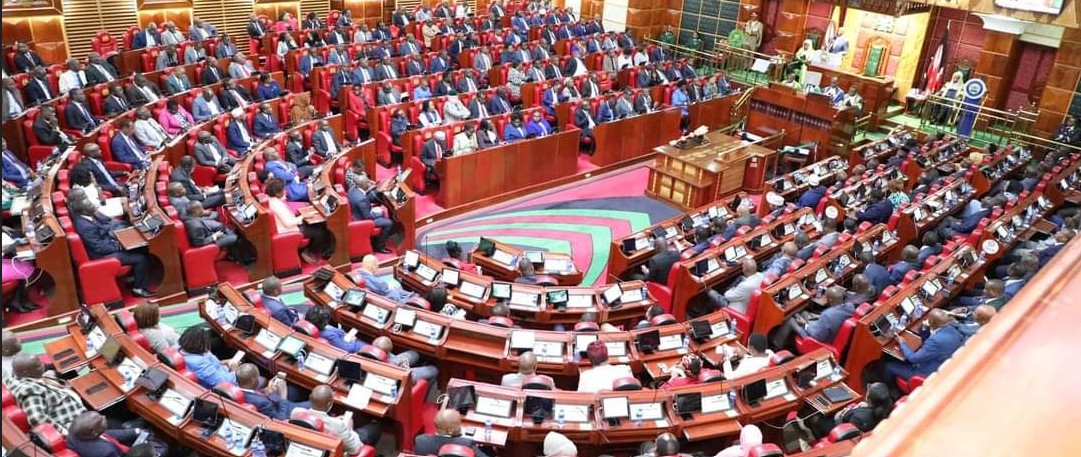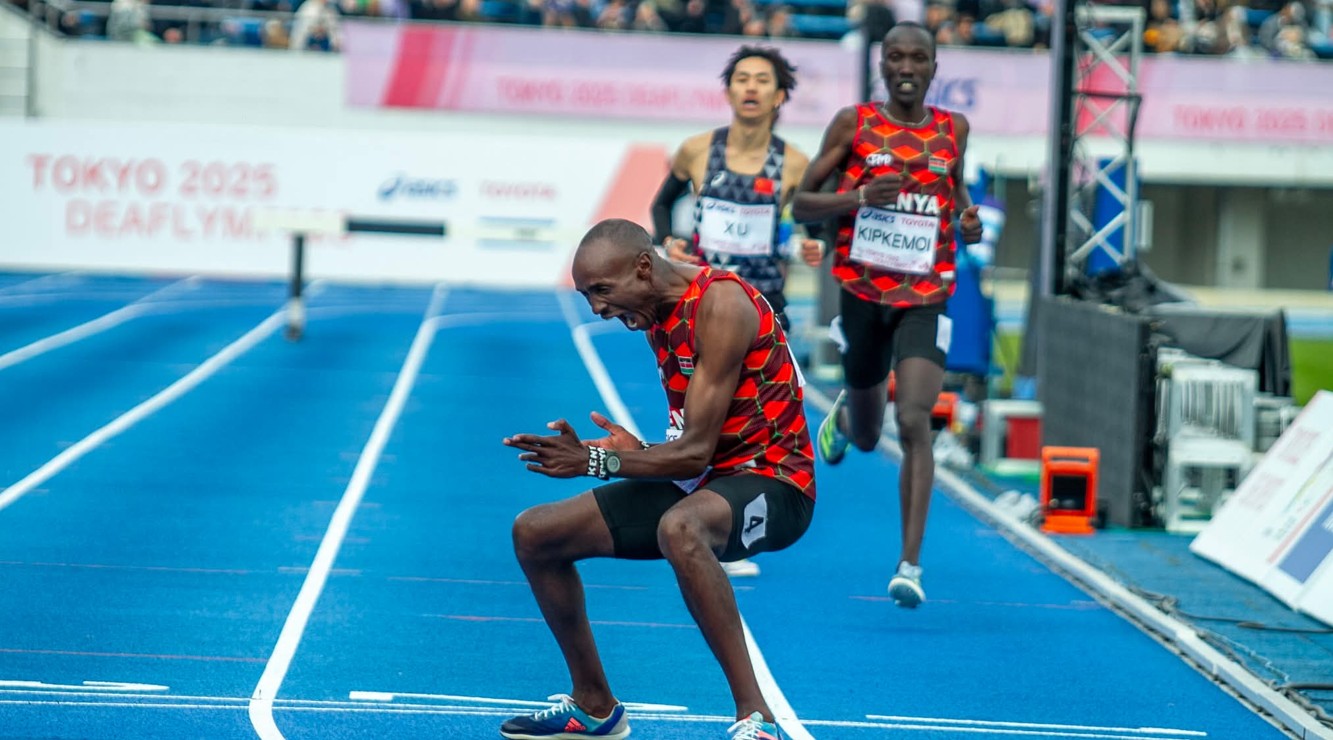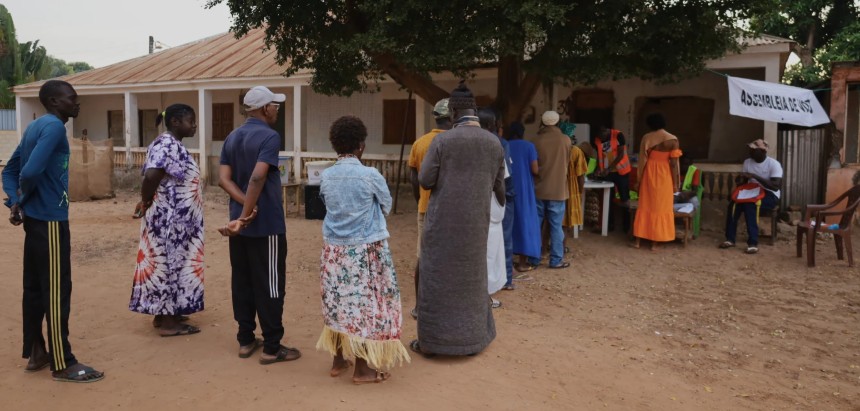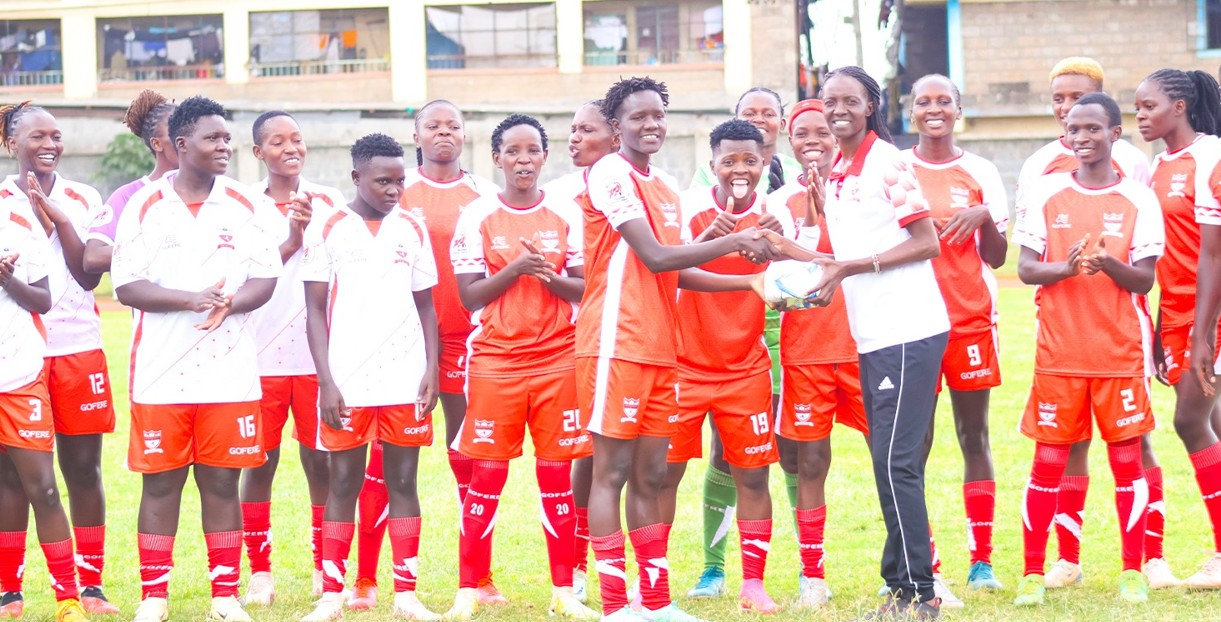Nairobi convening focuses on collaborative efforts to combat cervical cancer in Africa
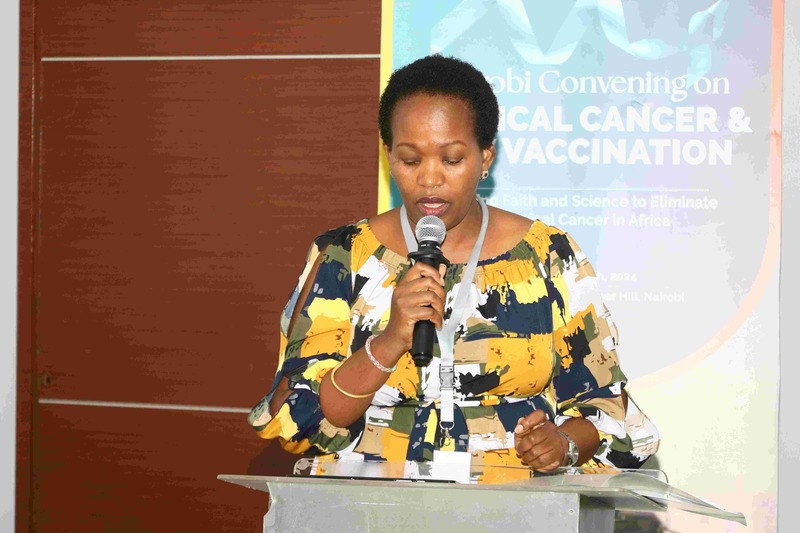
This event marked a significant milestone in addressing the impact of cervical cancer in Africa and led to several crucial outcomes.
Low- and middle-income countries continue to bear the brunt of the cervical cancer burden, accounting for about 94 per cent of the 350,000 deaths attributed to the disease annually.
Globally, cervical cancer stands as the fourth most common cancer among women, with approximately 660,000 new cases reported in 2022. According to the WHO, the highest incidence and mortality rates are found in sub-Saharan Africa, Central America, and South-East Asia.
More To Read
- Kenya steps up border checks as Ethiopia confirms outbreak of Marburg Virus Disease
- Kenya reports progress in HPV vaccination, still short of WHO target
- Ending violence against women ‘a matter of dignity, equality and human rights’
- UN calls for legal safeguards for AI in healthcare
- Violence is a normal part of life for many young children: Study traces the mental health impacts
- 10 runners race up Mt Kenya in 10 hours to honour women lost to cervical cancer
In a bid to address these disparities, religious leaders and various professionals have come together to outline strategies to combat cervical cancer and HPV. Focusing on behavioural change, screening, palliative care, and psychosocial support, they aim to bring a holistic approach to this pressing health issue.
During the recent Nairobi Cervical Cancer Elimination and HPV Vaccination Convening, held from June 11–13, 2024, faith leaders, health professionals, community advocates, and policymakers united under the theme "Uniting Faith and Science against Cervical Cancer."
This event marked a significant milestone in addressing the impact of cervical cancer in Africa and led to several crucial outcomes.
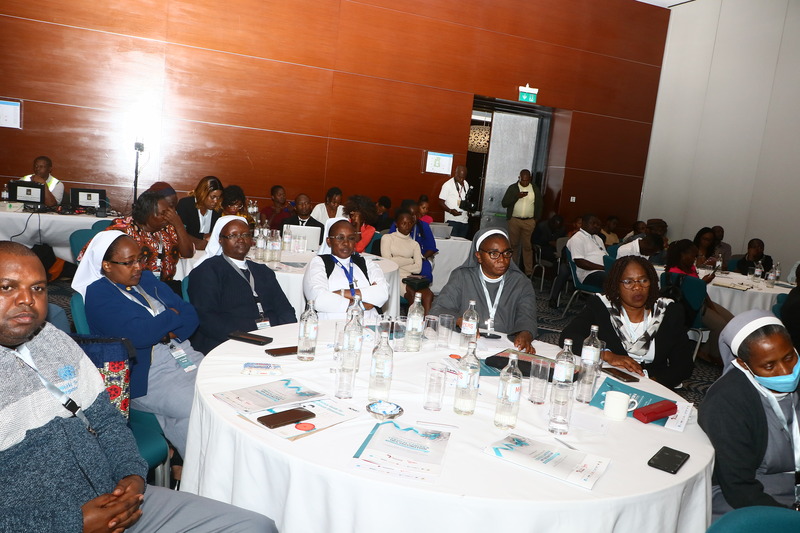 The participants who attended the Nairobi convening on cervical cancer and HPV vaccination at Radisson Blue Hotel in Nairobi on June 13 2024. (Photo: Justine Ondieki)
The participants who attended the Nairobi convening on cervical cancer and HPV vaccination at Radisson Blue Hotel in Nairobi on June 13 2024. (Photo: Justine Ondieki)
Faith leaders stressed the importance of behavioural change in tackling the disease. Regina Ndenya, a religious leader and nurse speaking at the event, highlighted the dangers of HPV and the necessity for clear communication to ensure informed decisions.
“If we do not talk about values to enhance moral behaviour, making changes will be difficult. Behavioural change can help us approach this issue," Ndenya stated.
She also stressed the emotional distress associated with the disease, adding, "Many doctors know how to break the news about the disease but lack the expertise to offer psychosocial care to the patients, which affects them. If we can diagnose the fear and include it as a component of treatment, we can make a significant impact."
Father Charles Chilufya from Madagascar highlighted the establishment and strengthening of collaborative networks among faith-based organisations, health authorities, advocacy groups, and community organisations.
“This network aims to enhance the reach and effectiveness of cervical cancer prevention efforts,” he said.
The convening focused on building the capacity of faith leaders through multiple workshops and sessions designed to equip them with the knowledge and resources necessary to advocate for behavioural change, HPV vaccination, screening, treatment, palliative care, and survivorship.
A major emphasis was placed on increasing HPV vaccination rates. Participants leveraged the influence of faith networks to boost public awareness and ensure widespread vaccine uptake.
The convening resolved to expand screening initiatives, utilising the resources and influence of faith leaders to broaden behavioural change activities and screening efforts across the continent. Advanced diagnostic technologies and improved infrastructure will be employed to reach remote and underserved areas.
Discussions highlighted the urgent need to enhance access to treatment protocols for pre-cervical and cervical cancer. This includes upgrading local health facilities, offering continuous training to healthcare professionals, and ensuring the availability of essential medical supplies and equipment.
Policy engagement and advocacy were also key outcomes.
The convening proposed strategic discussions with policymakers to advocate for comprehensive cervical cancer care policies in line with WHO targets.
 Father Charles Chilufya addresses participants during an event uniting faith and science to eliminate cervical cancer in Africa held in Nairobi at the Radisson Blue Hotel on June 13, 2024. (Photo: Justine Ondieki)
Father Charles Chilufya addresses participants during an event uniting faith and science to eliminate cervical cancer in Africa held in Nairobi at the Radisson Blue Hotel on June 13, 2024. (Photo: Justine Ondieki)Father Charles Chilufya addressing participants during an event uniting faith and science to eliminate cervical cancer in Africa held in Nairobi at Radisson Blue hotel on June 13, 2024. (Photo: Justine Ondieki)
Sustainable healthcare models were recommended, incorporating behavioural change communication, HPV vaccination, screening, treatment, palliative care, and survivorship into primary healthcare systems. This ensures lifelong access to these critical services for girls and women.
Community engagement and education were emphasised, with culturally sensitive advocacy strategies developed to increase public awareness and participation in HPV vaccination and screening. Educational programs and community workshops were planned to dispel myths and stigma associated with cervical cancer.
To ensure the effectiveness of these strategies, a framework for ongoing monitoring and evaluation was established. This will allow for continuous improvement based on real-time data and feedback.
Participants resolved to sustain the momentum generated during the convening through regular follow-up meetings and communications among all stakeholders.
These outcomes reflect a comprehensive and collaborative approach to combating cervical cancer in Africa, aiming for increased HPV vaccination rates, enhanced screening, robust treatment protocols, and effective public health strategies.
Together, the participants are committed to striving towards a future where cervical cancer no longer poses a significant threat to the health and well-being of African women.
Benda Kithaka, Executive Director and Founder, KILELE Health Association, highlighted the importance of creating awareness about cervical cancer and its prevention to ensure Africa aligns with the WHO vaccination target by 2030.
“WHO advocates for 90 per cent of girls to be vaccinated with the HPV vaccine by age 15, 70 per cent of women screened with a high-quality test by ages 35 and 45, and 90 per cent of women with cervical disease receiving treatment,” said Kithaka.
The WHO also notes that cervical cancer can be cured if diagnosed and treated at an early stage.
Recognising symptoms and seeking medical advice to address any concerns is a critical step. Women should see a healthcare professional regularly to ensure timely detection and treatment.
Karen Nakawala, executive director at Teal Sister Foundation and a cancer survivor, stressed the critical need to prioritise cancer treatment.
"Cancer can be a very isolating and costly disease. Early detection makes treatment much easier," said Karen.
Top Stories Today
